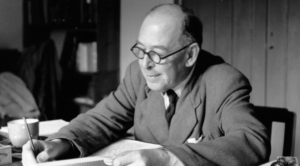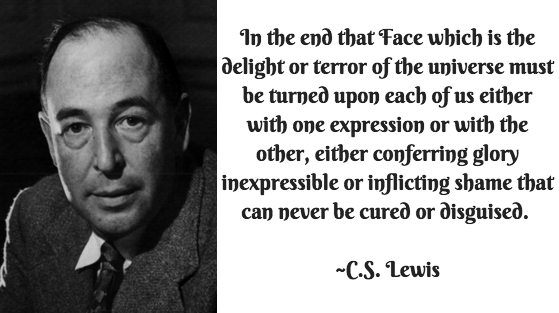How Honor Baffled (& Awed) C. S. Lewis
C.S. Lewis preached “The Weight of Glory” in 1942. In this sermon he speaks personally about his understanding of the biblical promises of honor and glory. Here are 4 phases of his theology.
1. C.S. Lewis saw honor
One can hardly read the scriptures without encountering the realities of honor/glory and shame (unless of course your cultural filter sifts them out). Being uniquely attuned to the nuances of literature, C. S. Lewis recognized honor and shame in the Bible.
“I turn next to the idea of glory. There is no getting away from the fact that this idea is very prominent in the New Testament and early Christian writings. Salvation is constantly associated with palms, crowns, white robes, thrones, and splendor like the sun and stars.”
“The promises of Scripture may very roughly be reduced to five heads. It is promised, firstly, that we shall be with Christ; secondly, that we shall be like Him; thirdly, with an enormous wealth of imagery that we shall have “glory”; fourthly, that we shall, in some sense, be fed or feasted or entertained; and finally, that we shall have some sort of official position in the universe.”
2. Honor baffled C.S. Lewis
Nevertheless, these biblical realities of our glory remained incomprehensible to C. S. Lewis. His intellect wanted to explain away these puzzling, and even repulsive, promises of divine glory.
“Glory suggests two ideas to me, one seems wicked and the other ridiculous.”
Here he recognizes the modern bias of honor as a second-class moral value.
“All this makes no immediate appeal to me at all, and in that respect I fancy I am a typical modern.”
3. C.S. Lewis comprehended honor
He ultimately realized God’s glory was the very gift we most long for as humans.
“Glory, as Christianity teaches me to hope for it, turns out to satisfy my original desire and indeed to reveal an element in that desire which I had not noticed.”
Honor expresses an element of our original desire, but also frames the final moments of history. Here he sees how salvation-history climaxes with the full revelation of God’s face, which could only confer glory or inflict shame. Glory frames the telos of creation.
“In the end that Face which is the delight or terror of the universe must be turned upon each of us either with one expression or with the other, either conferring glory inexpressible or inflicting shame that can never be cured or disguised.”

4. Honor awed C. S. Lewis
Upon coming to terms with such honor, C. S. Lewis still wrestled to fathom the seemingly impossible “weight or burden of glory which our thoughts can hardly sustain.” This is perhaps the truest expression of his new understanding—the dreadful awe of bearing God’s majestic glory in these earthen vessels. In the end, such glory captured C. S. Lewis’ heart.
“Apparently, then, our lifelong nostalgia, our longing to be reunited with something in the universe from which we now feel cut off, to be on the inside of some door which we have always seen from the outside is no mere neurotic fancy, but the truest index of our real situation. And to be at last summoned inside would be both glory and honour beyond our merits and also the healing of that old ache.”
“The promise of glory is the promise, almost incredible and only possible by the work of Christ, that some of us, that any of us who really chooses, shall actually survive that examination, shall find approval, shall please God.”
Conclusion
C.S. Lewis provides fresh theological insights we can all learn from. But a secondary value is how these 4 phases offer a rubric for assessing your own honor-shame theology. Where are you in the process? Phase 1, 2, 3, or 4? The ultimate purpose of theological and ministry is to cultivate hearts that delight in honoring God’s majestic glory.
- Click here for the full sermon “The Weight of Glory.”
- Also read about Bonhoeffer’s Theology of Shame.
- Teaching about glory or honor? Use the quotes above.

I really like how you have surveyed that great sermon and your 4 point summary – very useful and helpful.